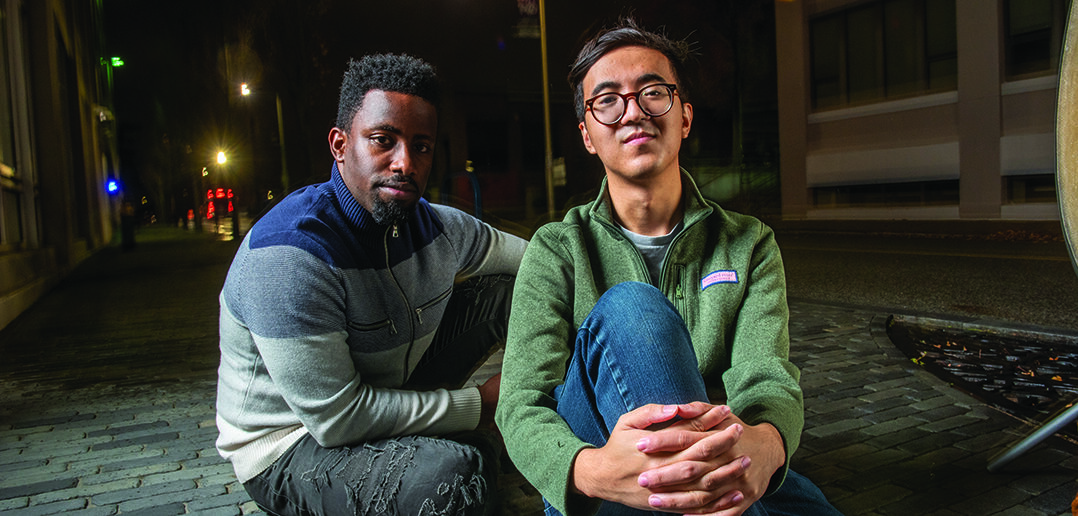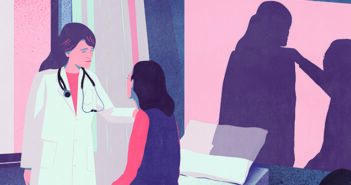Students tell their stories—and offer solutions.
As Tino Delamerced ’18 MD’22 and Stephen Bozier ’17 MD’23 chatted over coffee in the summer of 2019, they realized that of the six Black men in their class, only three were moving on to the second year. Two of the others had to repeat their second semester, and one was asked not to return.
Delamerced and Bozier say this statistic demonstrated a larger trend across US medical schools. “It was clear after just a few conversations that the burden of remediation [repeating coursework]was falling disproportionately on students of color, particularly students underrepresented in medicine and BIPOC students,” Bozier says.
They wanted to go beyond the numbers for an episode of Firsts, Delamerced’s podcast about students’ first-time medical experiences, “to contextualize those statistics,” says Bozier, the president of Brown’s Student National Medical Association chapter. “We needed to offer a duality of data and narratives, since the two together are that much more powerful.”
They interviewed four Black classmates about the specific challenges that disproportionately affect students underrepresented in medicine (UriM), such as financial constraints, family-related stress, and the intersection of perceived professionalism and race.
“I do know that I’m going to finish and get the job, but …I always feel like I have to prove myself,” Ahmed says on the podcast. Another student, Danielle, tells how, after talking to a patient about their favorite food spots in an area of New York City, her preceptor told her she was too informal. “What I regarded as rapport, she regarded as unprofessional,” Danielle says. “We want people who are underrepresented in medicine—however, we also want to conform to what we say is professional and acceptable.”
Delamerced and Bozier say the interviews required honesty, vulnerability, and courage. “It was really important to me that, if we were going to ask these students [about their experiences], we were very intentional about how we were going to use these stories,” Bozier says. “We wanted there to be some healing and validation in this process.”
After months of work, the episode, “First Reckoning,” dropped last August. “We were so nervous about what people would think,” Delamerced says—Medical School leadership in particular. But faculty welcomed it with enthusiasm, sharing it with colleagues and tweeting the podcast link.
“We now know that we have very strong and very genuine allies for students of color among faculty at AMS… and people who are ardently looking to rectify things at our institution and beyond,” Delamerced says. They especially appreciated the response of Roxanne Vrees ’98 MD’03 RES’07, associate dean for student affairs, who actively pushed her colleagues to listen. “That still leaves me speechless, that all these people in important positions at AMS were listening to our podcast,” Delamerced says.
After the killing of George Floyd and widespread protests against police brutality last summer, “First Reckoning” contributed to a wider awareness of the challenges URiM students face at Brown, and to making change. In response to student demands, the Medical School is investigating disparities in remediation. And because of the podcast, the administration changed a policy so that students are not required to pay additional tuition for a repeated semester.
Bozier says there was some “divine energy” around the timing of the podcast episode. “COVID and its disproportionate impact on people of color … the nationwide refocus around anti-Black violence and white supremacy, and the historic student activism happening at Brown … added even greater context for the themes we were discussing in this podcast to then be discussed and received,” he says.




